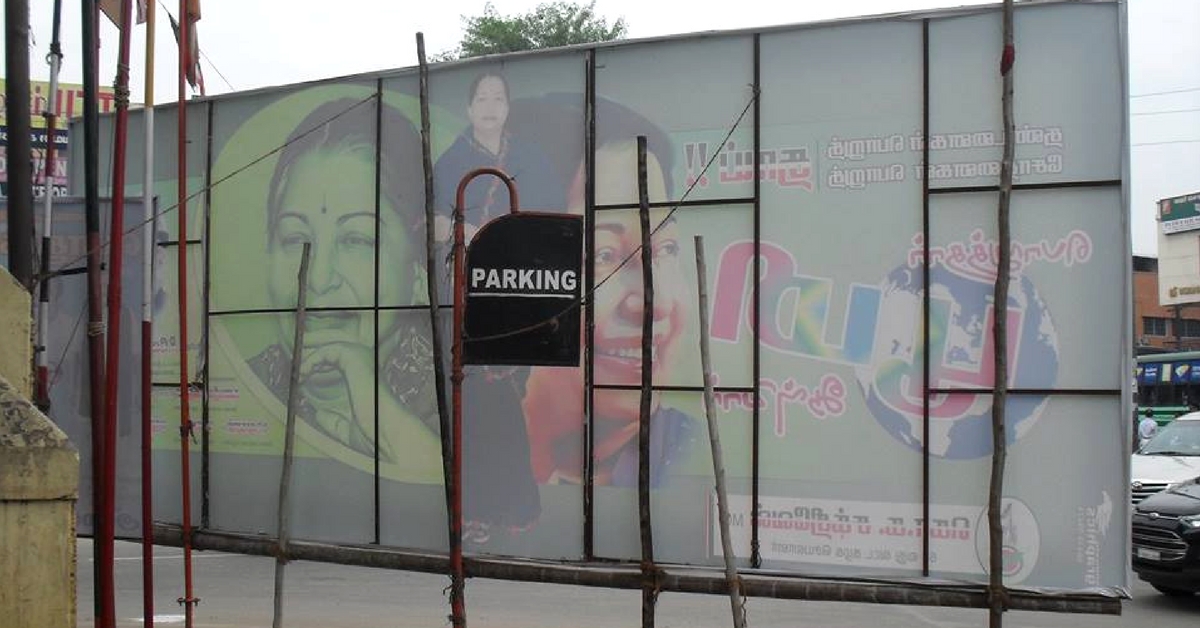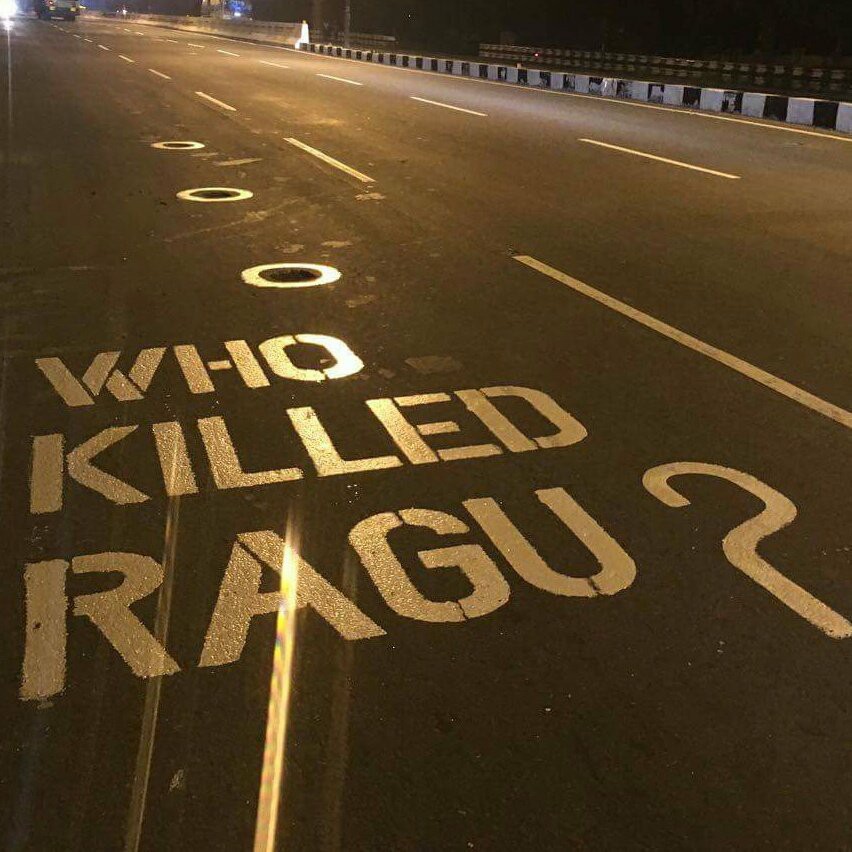Who Killed Ragu? Here’s How Indian Cities Can Tackle Dangerous Illegal Hoardings
Various states across the country have a ‘Prevention of Defacement of Property Act’ instated under their jurisdiction that clearly views illegal hoardings as a menace and directs its MCDs to penalise the violators and repeated offenders, yet hardly any stringent action has even been taken to curb the practice.

Despite having been declared illegal by the Indian judiciary and lawmakers, one can find massive hoardings strewn across public places in the country.
Be it a mouthpiece for political parties or advertising platform for private companies; these hoardings have not only emerged as a menace but also a defacement of public space.
In light of the recent incident in Coimbatore, where a 30-year-old NRI engineer met with a tragic end as he rode back home, one can’t entirely assert that his death had occurred due to the illegal hoarding erected on Avanashi Road, as claimed by many political parties.
However, one can neither rule out the possibility of the wooden arch hoarding, which is believed to have occupied almost one-fourth of the road’s width, of having played a decisive role in the accident.

Various states across the country have a ‘Prevention of Defacement of Property Act’ instated under their jurisdiction that clearly views illegal hoardings as a menace and directs its MCDs to penalise the violators and repeated offenders, yet hardly any stringent action has even been taken to curb the practice.
Taking the lead, Brihanmumbai Municipal Corporation (BMC) had launched helpline numbers for citizens to lodge complaints about illegal banners in 2015. As to effective measures implemented in regard by civic authorities following the service launch in the maximum city, there remains much to be debated upon.
The West Bengal government’s decision to tax private players, who erect commercial hoardings along the national and state highways in September, can be viewed as an interesting move in the context. The intention was to route the tax to the state PWD, who is responsible for the maintenance of the roadways. But the question still stands, what about the illegal ones?
In Pune, the municipal corporation has buckled up to end to the rising number of illegal hoardings and banners. From blacklisting agencies that put up illegal banners and hoardings to terminating the licences issued to them to put up advertising boards in the city, the PMC is leaving no stones unturned.
According to The Indian Express, close to 1,34,517 illegal boards, banners, flex, flags, posters and kiosks were taken down in the current financial year while the action was taken against 3,04,565 and 1,73,166 illegal boards in 2016-17 and 2015-16 respectively.

In New Delhi, a new policy framed by Environment Pollution (Prevention and Control) Authority (EPCA) was given the nod by Supreme Court in August, which ensures a ban on advertisements on roadsides that could distract commuters with its content and particularly focuses on hoardings erected in areas like national parks, historical monuments, world heritage areas and religious places.
The helpline model adopted by BMC emerges as a solution that other MCDs across the country could take up as well. Not only does this give the public a platform to voice out their objections but also help the civic bodies to identify and penalise perpetrators on a larger scale. The authorities, on their part, must ensure immediate enactment of penalty.
This could probably be the better way in which we can avert further tragic mishaps like that in Coimbatore.
Like this story? Or have something to share?
Write to us: [email protected]
Connect with us on Facebook and Twitter.
NEW: Click here to get positive news on WhatsApp!
If you found our stories insightful, informative, or even just enjoyable, we invite you to consider making a voluntary payment to support the work we do at The Better India. Your contribution helps us continue producing quality content that educates, inspires, and drives positive change.
Choose one of the payment options below for your contribution-
By paying for the stories you value, you directly contribute to sustaining our efforts focused on making a difference in the world. Together, let’s ensure that impactful stories continue to be told and shared, enriching lives and communities alike.
Thank you for your support. Here are some frequently asked questions you might find helpful to know why you are contributing?


This story made me
-
97
-
121
-
89
-
167











